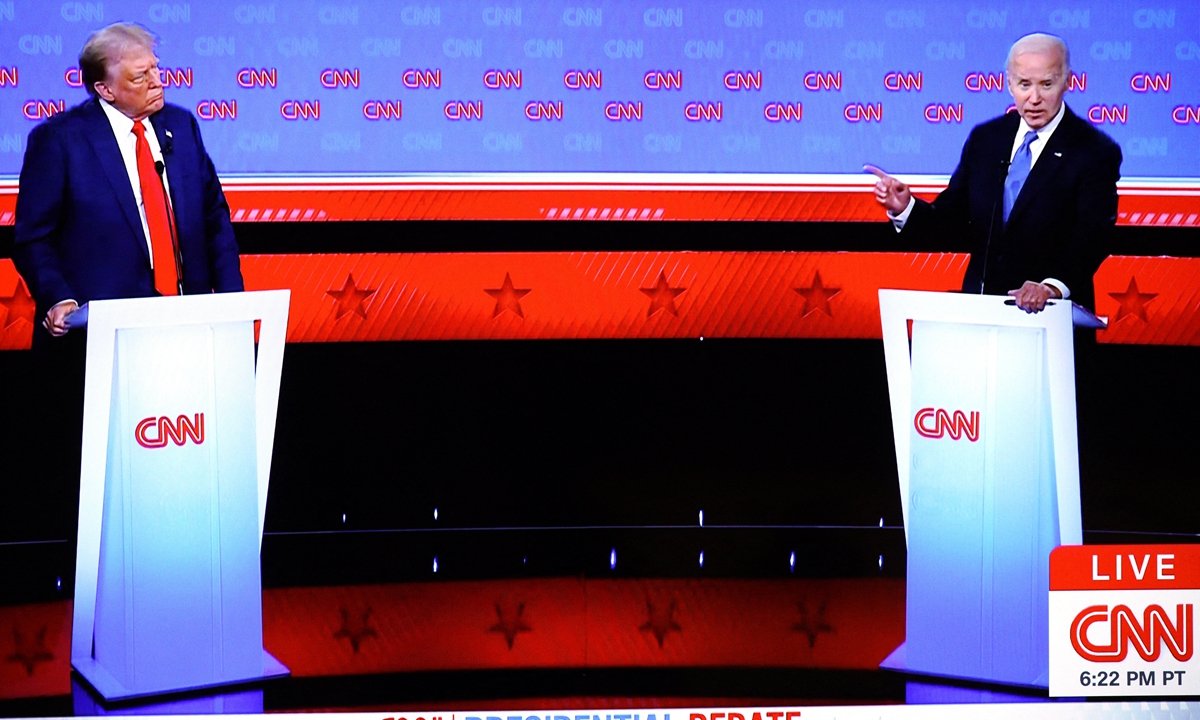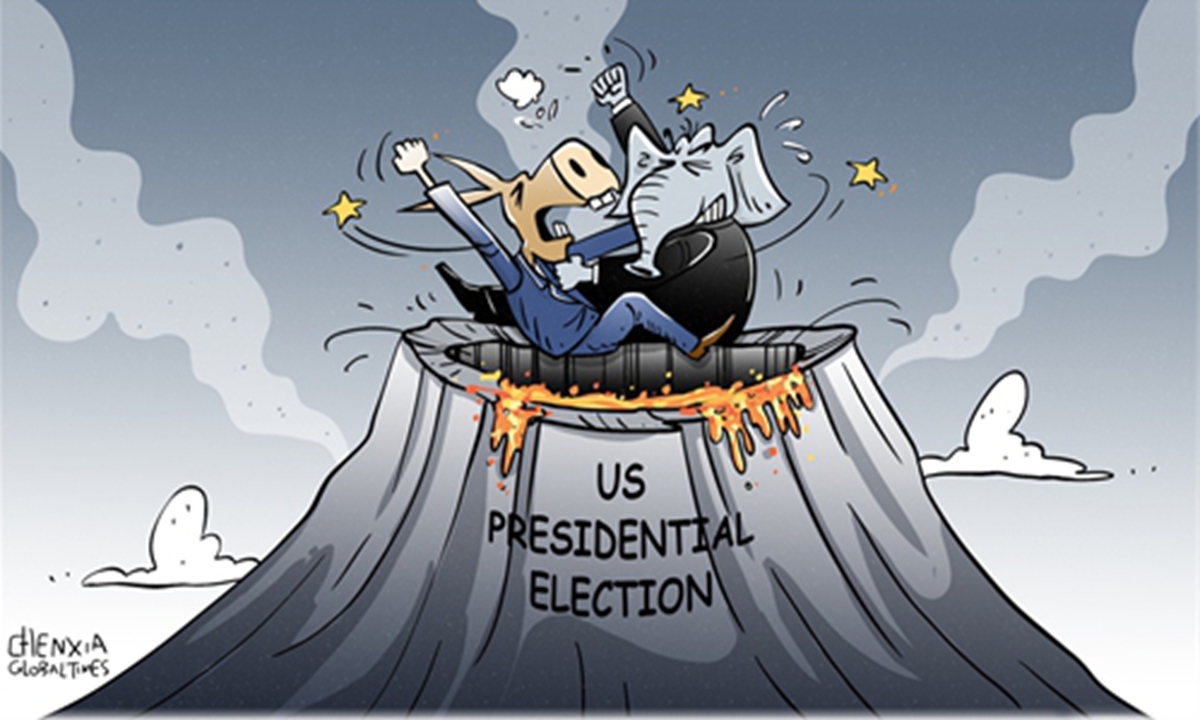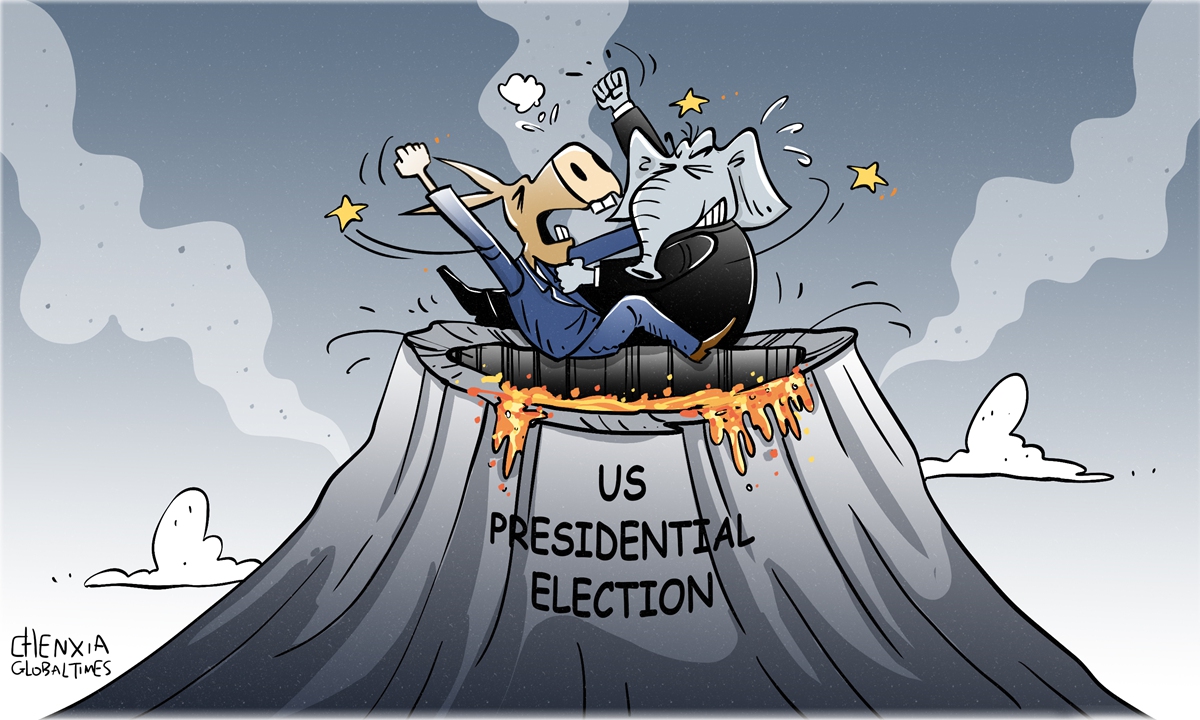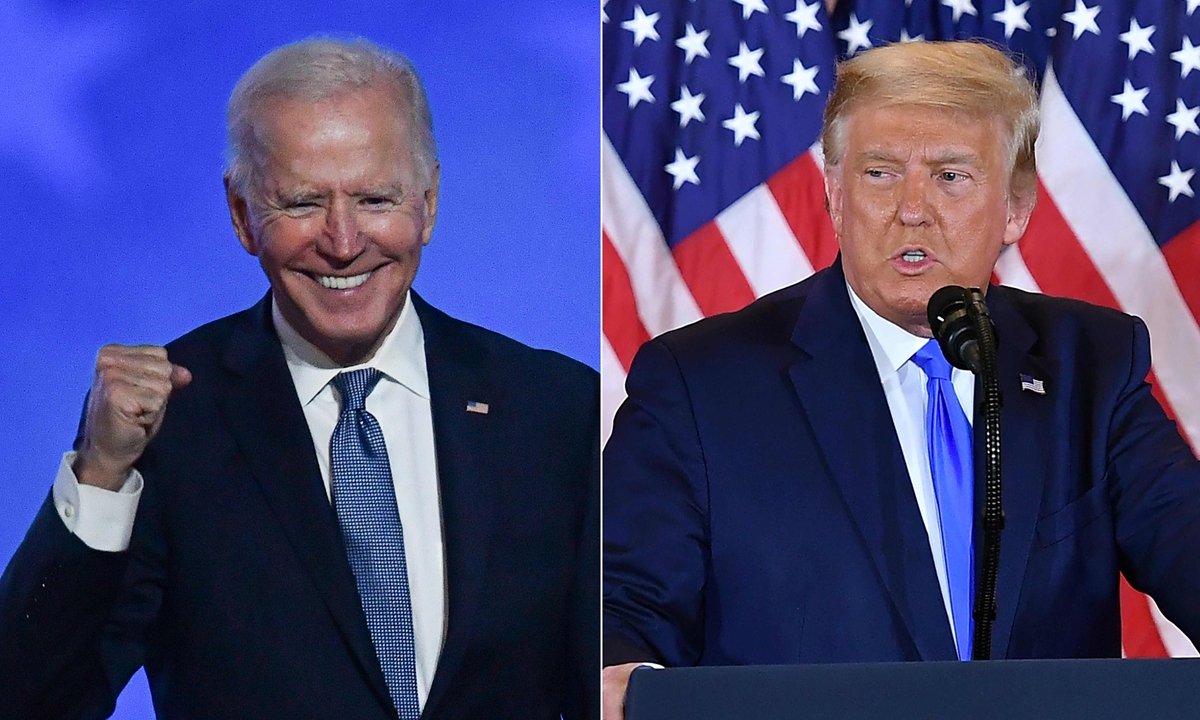Face-off of US presidential candidates 'fails to inject vitality' into rigid politics

Incumbent US President and Democratic candidate Joe Biden has a televised debate with his rival former president and Republican candidate Donald Trump on June 27, 2024 local time in a CNN studio in Atlanta, Georgia. The debate is three months earlier than usual as such televised debates often start in September. Photo: VCG
The curtain fell on the 2024 US presidential election's first televised debate on Thursday, but the performances of the two candidates neither impressed nor surprised American voters and foreign observers.
The Thursday debate merely followed election tradition and had barely any impact on Americans, who have to acknowledge the reality that neither candidate can bring vitality to a stagnant US political scene, Chinese observers said on Friday.
Associated Press said the debate, happening in a CNN studio with no audience, was defined by personal attacks after US President Joe Biden delivered rambling answers and his Republican rival, Donald Trump, countered with falsehoods. The New York Times also described the two candidates as "two unpopular men."
Biden arrived with a raspy voice and spoke softly, the result, his campaign claimed, of a cold. Biden sometimes mumbled, got tongue-tied or lost his train of thought, a performance unlikely to calm anxiety among Democrats and many Americans about the 81-year-old president, according to the Associated Press (AP).
His 78-year-old rival Trump, as he often does, spoke with force but with plentiful falsehoods, AP reported. The news outlet, in its online threads covering the event, incorporated fact check sheets, which observers noted was not a common practice.
Trump and Biden also bickered over how far they can hit a golf ball and their stamina on the course, with Trump bragging about trophies he's won and Biden claiming he's been a single-digit handicap, according to AP.
Lü Xiang, a research fellow of US studies at the Chinese Academy of Social Sciences, told the Global Times on Friday that the debate itself did not bring any fresh ideas as the two candidates are not new faces, and the public know their policy orientation and style quite well.
Though the two candidates attacked each other verbally, Lü said the debate itself was not stimulating as the moderator's questions were not challenging, while the candidates' answers were given limited attention.
Economic problems, immigration, abortion, Ukraine and tariffs were touched on during the debate. But instead of focusing on their responses, viewers paid more attention to Biden's slips of the tongue and Trump's dramatic facial expressions in reaction to Biden's remarks, when the rules do not allow jostling the microphone, according to online comments on the debate.
"It is more of a variety show than a serious election debate," Lü said, as both candidates have a specific base and the scale of swing states has dropped sharply, meaning conventional campaign procedures will have little influence on voters' options.
Lü cited Trump's felony conviction in his hush money case in May, which resulted in little fluctuation of his support rate in polls.
Supporters of either candidate are going further toward extremes, leaving no room for centrists, analysts said. The only uncertainty that could affect the campaign pace would be the sentencing for the hush money case scheduled for July 11.
As the two candidates debated at the CNN studio in Atlanta, Georgia, protesters gathered outside the venue to call attention to the US' role in Israel's war in Gaza and called on both candidates to push for a ceasefire, Al Jazeera reported.
Biden and Trump have agreed to one more showdown on the debate stage, which will be hosted by ABC on September 10 after both candidates formally accept their party's nomination, according to CBS.
Public apathy
The tradition of TV debates between presidential candidates dates back to 1960, between Democratic nominee John F. Kennedy and Republican nominee Richard Nixon. It became a regular part of presidential election campaigns after 16 years.
But 2024 is unusual, as the first TV debate, which usually takes place in fall, was moved up by at least three months.
The arrangement could have been the result of a bipartisan consensus that an early debate could raise public enthusiasm for the presidential elections when Americans are becoming apathetic to voting and both sides assume a higher turnout would favor their own party, Lü said.
With more than four months to go until election day, the latest national NBC News poll found the share of voters who say they are very interested in the 2024 election has hit a nearly 20-year low at this point in a presidential race, with majorities holding negative views of both President Joe Biden and former President Donald Trump.
An American registered voter living in Seattle, 32, told the Global Times on condition of anonymity that neither of the candidates is competent, but what frustrated him most is "they were nominated for a rematch."
"There must be something wrong with the system."
Li Haidong, a professor at the China Foreign Affairs University, told the Global Times that there are undoubtedly talented individuals within both parties, but the current party culture makes it difficult for them to emerge. "This is a clear manifestation of the sluggishness, rigidity and lack of vitality in the American political machine."
Another voter in her 50s from North Carolina used to believe that the US' democratic system, namely the separation of the three powers, could help fix potential loopholes if a less than ideal candidate is elected. "But the past eight years proved I was totally wrong."
Based on the two candidates' governance in the past, analysts are worried over whether the incoming president can rally the government departments whose interests could contradict each other, and make them work together smoothly.
"A US fighting with itself will bring about major uncertainties and risks to the world," Lü said.



